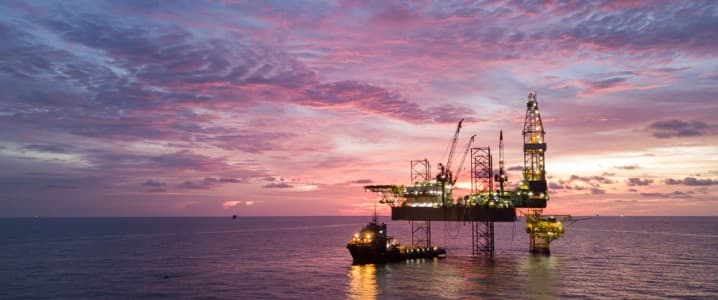
Malaysia-based Yinson Production Pte Ltd (YP) and Azule Energy are piloting an offshore carbon capture and storage (CCS) plant on floating, production, storage, and offloading (FPSO) Agogo in Angola.
The plant is the world’s first post-combustion carbon capture unit installed onboard an FPSO, YP said in a news release Monday. It is designed at a pilot scale and will be used as a demonstration unit in an offshore floating environment to assess technical readiness and gain operational know-how. “This marks an important step in implementing future scale-up of the CCS technology for YP’s Zero Emissions FPSO projects”, YP said.
In February 2023, YP and Azule entered a firm contract for the provision, operation, and maintenance of the FPSO vessel for the Agogo Integrated West Hub Development Project in Angola. FPSO Agogo will be YP’s first offshore production project in Angola and marks YP’s eighth FPSO project in the West African region.
In addition to the CCS plant, FPSO Agogo will feature other emissions-lowering technologies such as electrification, advanced automation and digitalization, a combined-cycle power system, a seawater turbine generator, a hydrocarbon cargo tank blanketing scheme, and an integrated closed flare system. The combined innovations onboard FPSO Agogo will significantly reduce its overall carbon emissions and improve operational efficiency, transforming it into an industry-leading project, according to the release.
Carbon Circle Holding AS, a carbon removal and energy engineering, procurement, and construction (EPC) company, has been selected to design and construct the CCS plant. YP added that construction on the plant is “progressing well”.
“As a top-tier FPSO contractor, YP’s goal is to explore and provide sustainable energy solutions and make recommendations to our clients that will significantly reduce greenhouse gas emissions from their operations”, YP CEO Flemming Gronnegaard said. “We are pleased that both YP and Azule are fully aligned in our commitment to implementing emission-reduction technologies such as the CCS plant onboard FPSO Agogo”.
Inecosolar to Build Solar Panel Project for Lazada
Meanwhile, PT Ineco Solar Solutions (Inecosolar), a subsidiary of Yinson Renewables (YR), and Lazada Indonesia (Lazada), through its business unit Lazada Logistics, have signed an agreement to design, construct, install, operate, and maintain a 396 kilowatt-peak (kWp) solar panel project at Lazada’s largest logistics facility located in Cimanggis, Depok, West Java.
The solar panels are designed to generate more than 555 megawatt-hours per year, with an estimated 400 metric tons of carbon emissions avoided. The panels aim to meet approximately 13 percent of Lazada’s Cimanggis warehouse electricity needs, according to an earlier news release from YP.
“This is a significant achievement for Inecosolar as we offer energy as a service to one of the leading e-commerce platforms in the region”, Inecosolar Managing Director Benoît Prim said. “As one of the leading all-in-one energy-as-a-service (EaaS) providers in the country, our goal is to provide Lazada with a comprehensive package that offers the full financing, construction, operation, and maintenance, without any upfront cost”.
“Our strong commitment to building a sustainable business and creating a positive impact refers to the principles of Environment, Social, and Governance (ESG)”, Lazada Indonesia Chief Logistics Officer Philippe Auberger said. “We hope that our various steps and efforts, including the use of renewable energy by installing solar panels, can contribute to reducing environmental impacts and creating a ‘greener’ Indonesian environment.”
“Installation of solar panels is one of the initiatives to support sustainability efforts at Lazada. The installation of solar panels at Lazada’s largest logistics facility is projected to reduce up to 400 tonnes of carbon emissions per year. This solar panel installation initiative is also being carried out to support the achievement of the Indonesian government’s new renewable energy (EBT) mix target of 23 percent by 2025”, Auberger added.
Source:https://www.rigzone.com/
